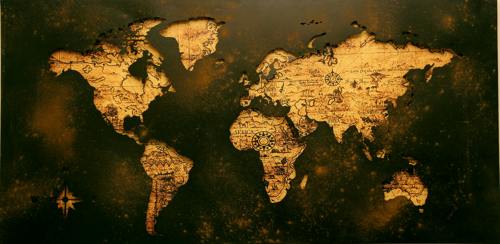In a world where some have everything and others have almost nothing, a pressing question emerges: What is the responsibility of those who have to those who have not? For some, this is a question of morality. For others, it is one of economics or geopolitics. But at its core, it is a question of humanity.

We live in an era of staggering inequality. A person born in Norway, Japan, or Canada will likely have access to clean water, education, and healthcare. A person born in parts of Haiti, South Sudan, or Afghanistan may face malnutrition, limited schooling, and the constant threat of violence. These differences are not the result of personal failure or individual choices—they are the outcome of a world that distributes opportunity unevenly.
Philosopher John Rawls argued that a just society is one where the least advantaged are not left behind. He posed the "veil of ignorance" thought experiment: If you didn’t know where in the world you’d be born, what kind of society would you design? Few would create the system we have today, where the accident of birth determines so much of one’s fate.
For centuries, societies have debated whether wealthier nations and individuals have an obligation to help those in need. Some argue that charity and humanitarian aid are moral imperatives, while others see them as optional acts of goodwill. But history offers a clear lesson: Societies that invest in the well-being of others ultimately strengthen themselves.
Consider the Marshall Plan, which rebuilt war-torn Europe after World War II. The U.S. provided billions in aid, not just as an act of generosity, but as a long-term investment in global stability. Today, the same principle applies: Ignoring poverty, conflict, and suffering does not make them disappear—it makes them problems that eventually spill over borders.
Having a global perspective means recognizing that national borders do not define human worth. It means understanding that opportunity should not be a privilege reserved for the lucky few. The Dalai Lama once said:
“It is not enough to be compassionate; you must act.”
It is easy to see suffering and feel momentary sympathy. It is harder to turn that sympathy into meaningful change. But throughout history, those who did—the abolitionists, the human rights activists, the visionaries—shaped the world for the better.
Bridging the gap between those who have and those who do not requires more than awareness—it requires action. Here’s what individuals and societies can do:
Support Ethical Giving – Donate to organizations that empower communities rather than create dependency.
Advocate for Fair Policies – Push for trade agreements and international policies that prioritize equity, not just profit.
Educate Ourselves and Others – A global perspective starts with understanding. Read beyond headlines. Listen to voices from underserved regions.
Invest in Solutions, Not Band-Aids – Sustainable aid, microloans, and education initiatives create long-term change rather than temporary relief.
The divide between those who have and those who have not is not a natural law—it is a construct of human systems. And if we built it, we can change it. The question is not whether the world can afford to help those in need; it is whether we can afford not to.
History will remember those who acted when they had the chance. Will we be among them?
